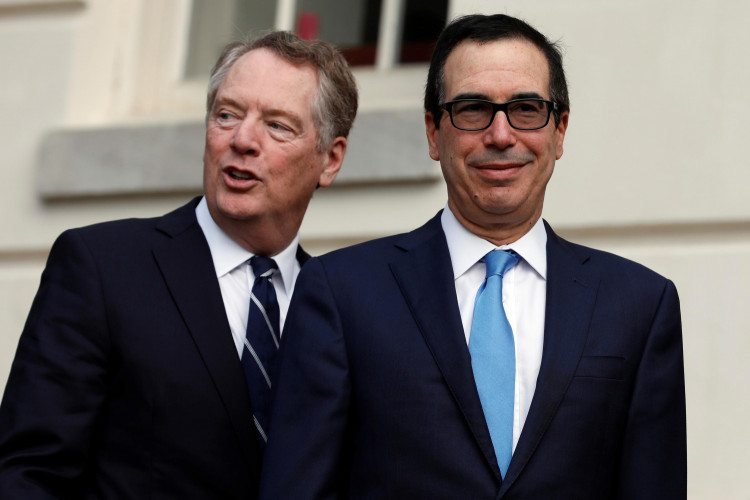United States Treasury Secretary Steven Mnuchin has cautioned that a fresh round of tariffs on $156-billion worth of Chinese goods would be unleashed if Beijing failed to sign the restricted agreement with US President Donald Trump last week.
Mnuchin's comments in an interview with CNBC late Monday demonstrated the delicate condition of a ceasefire of sorts that the US and China have reached in their 15-month trade showdown, following Trump's assertions that the two economic giants suddenly had a "heart feast."
The secretary's commitment to keeping taxes in focus comes days after Trump disclosed a "fundamental agreement in principle" for a "Phase 1 Deal" following a series of fresh top-level negotiations with the Chinese officials in Washington.
The two parties tackled financial issues, tech, intellectual property rights, currency, and foreign exchange as well as very important structural concerns on agriculture, one of the major subjects of contention in the ongoing trade tug-of-war, Mnuchin said.
While Trump hailed the deal reached on Friday after Liu He, China's vice-premier, spent two days negotiating with top US officials in Washington, Chinese diplomats were more cautious about the result, merely pointing to progress the two parties have so far achieved.
The specific deal struck late Friday includes the US holding off on raising taxes on Chinese products from 25 percent to 30 percent on $250 billion worth of goods, which was due to come into effect on Tuesday.
China, on the other hand, agreed to jack up agricultural buying and make certain concessions on access to its money markets and crackdown on theft of intellectual property. However, a joint statement has yet to be made.
Mnuchin said Washington expects Beijing to buy agricultural products worth $40 billion to $50 billion. He also said China should lift certain tariffs on specific US goods imports.
Trump said that completing the initial agreement would take up to five weeks, approximately in time for the US commander in chief to meet with Chinese leader Xi Jinping at the APEC Summit in Chile by the middle of next month.
Even if it is signed, the agreement would be limited as it would not resolve many of the main sticking points at the root of the trade war, such as industrial subsidies and cyber theft.
However, it would not disrupt US tariffs on $360 billion worth of Chinese goods that the Trump administration has put in place so far, so the business relief would be subdued.






